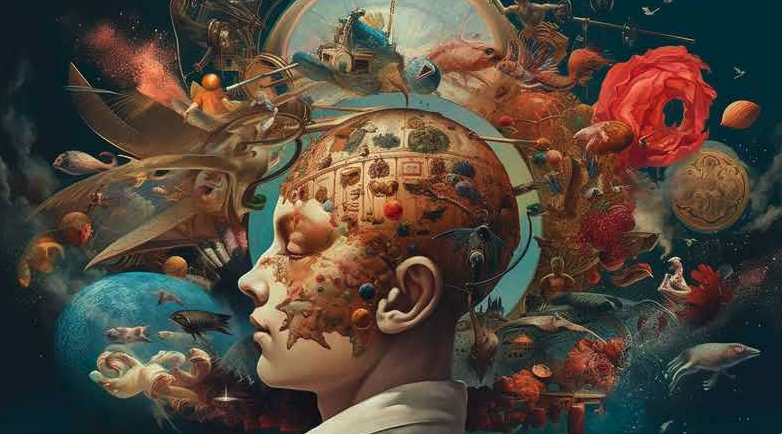About Journalism, Blogging, Truth, and Democracies
Mainstream journalist’s conceits are becoming more patently ridiculous. That is, that they constitute a ‘fifth estate’, that they are somehow important to democracy, that we actually live in a democracy.

There is no such thing as a ‘fifth estate’
I become dubious whenever I read or hear the terms ‘journalist’ or journalism’. Why I do requires some explaining. Basically, the importance of journalism in society is greatly overrated.
As I do blogging, I read a lot of other bloggers. Many of these people identify themselves as journalists. I end up engaged in comment box discussions with them, more than I really want to.
Where I usually end up in these discussions is with what is essentially an argument about the relation between epistemology and democracy. Epistemology is the study of how truth and knowledge are obtained. Most ideologies warp this science, and liberalism probably worst of all.
Most of these journalist want-to-bes buy into the liberal ideas of democracy and society. So do most of the people following their blogs. Of course these ideas are new in western civilization, but they treat them as axioms.
Most of the world sees them as absurd. Truth is relative. People make their own realities. Somehow people are expected to come to agreement about things by ‘debate’ and other adversarial processes, or a ‘marketplace of ideas’.
These kinds of ideas are fanatically held to by a large part of Canadian society. Not conforming to them can be a serious matter. In my younger years, I was traumatized by a maniac raving at me and bluffing about having me “sent away” because I “think everything is in black and white”.
Another experience I had goes to the heart of this topic. I once encountered a written test, supposedly measuring my mental stability. I was asked if I agreed with the statement that “we only need one newspaper which prints the truth”.
I knew what answer they wanted. However, I was a little disturbed by that. The people who designed this test were actually saying there is no one truth, but they imposed their truth on the test subjects. It is one of these propositions refuted by the act of making it.
Actually, a single newspaper, or single news service, which gives people the truth, would be a good start. Why, I will get to in this essay. If you really think this is a sign of mental instability, you may as well stop reading now.
But enough of my own unhappy earlier life, and of unhappy journalists. Here is how I became a blogger without any liberal or journalistic delusions.
Over time I discovered I could write pretty well, and think exceptionally well, and that these were really the only things I could do. I began to focus on perfecting my skills at these. Toward that, I really needed some outlet for my work, where I could get some constructive feedback and even a little pay for it.
I tried getting some of my stuff published in alternate media. I had some experiences at that which built my self insight and clarified what I really wanted to do and would be able to do. I found that I really did not appreciate people completely changing my work, and the point I was making, and then putting it out with my name under it.
I got some of my stuff rejected by the editor of a well known independent media outlet. He told me to take another look at it with fresh eyes. I refreshed my eyes and looked at it. I found it to be pretty much the way I had wanted it.
He told me to try submitting something when I wanted to write in a “correct journalistic format”. As it did not fit this idea of correct journalistic format, he could not even understand it. I took another look at the stuff his publication put out and realized that this was not what I really wanted to do.
I turned my energies elsewhere for awhile. I was not sure what I did want to write. Eventually, better platforms for blogging became available and it became my main activity.
I am still not sure what to call what I put into my blog platforms. I do not want to do a ‘rage against heaven’. There are enough cranks who cannot be satisfied with anything.
I want to write through the full spectrum of reality, including pleasurable things, and all the things which are going well in the world. I want to see things as they are, and I want to point it out to people. Of course that means learning how to identify my own biases and knowledge gaps.
Not all biases are bad. It is necessary to be biased toward the truth. But you have to know the truth. You learn your knowledge gaps so you can fill them in.
Truth is what it is and there cannot be forty different versions of it; forty different realities. This is very much against liberalism. But this is what I try to do when I do blogging; give people positive biases; biases toward, not against.
Alas, this is a generally unpopular thing to do in these times. People usually want their negative biases confirmed. This explains why I have developed only a small, though fairly committed, readership.
This also explains why I am so sour on the idea of journalism.
There is a need for journalism. The need is not what is generally assumed. That is why ninety percent of journalism is garbage.
Most journalism is merely the perception management system of anti democratic governments and institutions. The Atlanticist political economic system is seen to be breaking down. Thus, establishment journalism is losing credibility.
Mainstream journalist’s conceits are becoming more patently ridiculous. That is, that they constitute a ‘fifth estate’, that they are somehow important to democracy, that we actually live in a democracy. The electronic age is making it easier for alternatives to these people’s garbage to get through to the public.
That is a good and a bad thing. There is a growing alternative media, but it is not particularly useful. If they seriously impair the establishment, they are quickly put out of operation.
Alternative media are, basically, bloggers and podcasters. They may have good intentions but they do not have the resources to really investigate and research issues. They have no one to check their biases and knowledge gaps, and like most people are not so good at doing it themselves.
This is a problem I find constantly with Alternate Media. Some of them are very good within their limited areas of expertise. They often go stunningly stupid when they get outside of it.
Someone is very good at pandemic disinformation, but then repeats the climate nonsense like gospel. Then there is someone who is great at debunking climate hysteria, but thinks the pandemic is Biowar from China, because they are “communist”. The most pathetic are the chumps who support Russia in the Ukraine war, but Israel in the Palestine conflict, or vice versa.
Truth is available these days like never before, but forming a clear picture of it requires a lot of work. You have to spend hours searching, and then do a lot of brain work to figure out which sources are credible about what.
It seems that these alternative medias are having an increasingly hard time funding themselves. They are paywalling themselves. I am not wealthy and I do not have seven beans a month for all of them.
Realistically, the public does not have time and money for all this. To have an informed population, you need an authentic, all in one information service at a minimal price. That will only come from a government or large institution with at least a partial commitment to democratic principles.
This is why the best news sources are the state broadcasting systems of a few countries which are fairly democratic in principle. Discussing what real democracy is, and what countries are democratic, opens up arguments which get beyond the scope of this essay. At this point, it only needs to be said that there are very few real democracies in the world, and anyone who thinks Canada or any of the Atlanticist countries is a democracy has no idea what an actual democracy is.
The best international news sources, with resources to do a decent job, and a broadly democratic perspective, are RT out of Russia, China Global Television (CGTN), and Al Jazeera out of Qatar. All of them have their good and bad biases, but they are open about them. I can often get better news coverage of Canadian national affairs out of CGTN than I can from any Canadian source.
Here are the paradoxes about systems of journalism. We are not going to get a good information system until we have a reasonable level of democracy. We are not going to get and maintain sufficient democracy until we have a good information system.
To repeat, we cannot have forty different realities. Democracy is not every attention seeker, ideology, or interest group demanding to be ‘heard’. Real democracy is about knowledge formation and knowledge based decision making, outside the influence of cultural hegemons.
This is not about debates. It is done through dialectic processes and abductive thinking. Explaining what that is requires a blog in itself. But most really intelligent people instinctively practice it.
Toward this, a democratic state must develop an information service as an adjunct to government. This is not a "ministry of truth". It is about collecting the evidence which legislative and executive bodies need in order to be able to make evidence based decisions.
It must also be about correctly informing the public, so that people are clear headed and confident. Toward this, all efforts to create parallel realities, with an invented set of facts, must be shut down. This is for the same reason that a real democracy must be able to deal with all attempts by private interests to set up parallel governments.
In a real democracy there would be one voice; the public voice. The ideas of ‘free speech’ and free press’ have nothing to do with democracy. They are about an oligarchy managing the public’s perceptions. It is in the same way that ‘representation’ is about oligarchy and not democracy.
So in a democracy, or any kind of half ways legitimate governmental system, journalism serves little purpose, except as part of the state information service. For this to be of any use, the public must have confidence in it. If a public has no confidence in its government, it should overthrow it and create something else.
In a well set up democratic system, if the government is making a mistake, there are systems for reviewing its decisions. If there is some corruption or incompetence in some part of the government, there are procedures for reporting it and having it dealt with. Nobody should simply appoint themselves as the watchdogs over government.
In a well run country, people who want to do journalism may as well work for the official media services. This would be a boring job. There would be few problems and little to report on but public announcements, or deliberations of legislative councils.
For now, though, some people still romanticize the idea of journalism. I referred at the start of this to exchanges I have had with frustrated journalists looking to start out as bloggers. One in particular left his job with a newspaper because he felt he could not do it properly.
If he thinks he can do better in the blogosphere he will be disappointed. Roughly the same problems apply here. His real problem is, of course, fetishization of journalism.
I should put in a link to his blog post. It will be there until it is not.
Without fully realizing it, he does correctly identify the problem with the ideas of journalism, free press, and free speech. I have discussed them here and will sum them up in five points.
First; to run a proper information service requires substantial resources and a high degree of independence.
Second; to depend on attracting a paid audience or paid advertisers, means you have to tell a group of people what they want to hear. You cannot please everybody and so you have to create a following. Inevitably, you are creating false realities and setting people against each other.
Third; to tell people what they need to hear, inevitably means telling them what they do not want to hear. To get most of the population in the same page, means inevitably that you must compel people to acknowledge what they do not want to hear. This means that you must have a near monopoly on public information.
Fourth; to do this effectively you must also be credible and respected. Party lines and ministries of truth never work.
Fifth; to do this effectively is to become the public voice. Ideological people from left, right, and centre, really hate this idea. But there will be be no coherent society without a credible public voice.
The public voice may be commanded by the King, the Party, the Ayatollah, the Chief, or the Popular Assembly. To have a stable and functioning society, some one or some thing must decide what the truth is, for everybody, and must be accepted as acting for the public good. This is just how human societies work.
In a modern society, managing the public voice will require a good number of people with a journalist’s skills. There will likely be some work for our frustrated journalist when the present problems of political economy are sorted out. I am not sure what role bloggers will have in post capitalism.
However, I am a blogger who thinks blogging as an activity is even more problematic than journalism, and for the same reasons. Doing it usually requires a revenue, which means you are trying to attract and please an audience. Either that, or you are a paid influencer for somebody.
This is the formula for dividing a public into factions, not for uniting it. When a real democracy is set up, the blogosphere would probably be shut down or put under strict monitoring. This is at it should be.
I could go pretty far into how the internet should be organized for post capitalist times. I will blog about restricting blogs another time. A basic rule about any kind of group discussion is that, the bigger the group, the more useless the discussion without strong and competent moderation.
As for outright censorship, some form of censorship is outright necessary. Only outright twits say that anyone should be allowed to say whatever they want in public forums. But censorship must be done by people who are accountable.
There is a lot of censorship in Atlanticist countries right now. It is the wrong kind of censorship; administered by the management of privately owned platforms. This allows the oligarchy’s perception managers to hide their hands.
Here is another reason for the internet to be run as a public utility. That will happen someday after capitalism. But it will not happen soon.
We will live for awhile yet in all the attention seeking noise, and the attempts to shout down the truth. People will keep writing on the net for various reasons. I will keep writing for my own reasons.
I have written enough on this topic.




Comments ()